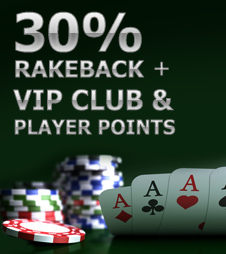There are professional poker players that have claimed that you do not need to be a math magician to be extremely good at poker. Sure, playing the percentages certainly works to your advantage, but what good is that if there is always another player trying to knock you off your hand when you actually have the better percentage to win and you just don't know it. That’s when being able to read your opponents and not the cards come into play.
Being a great poker player means being more than just the type of player who only plays the best of cards. The crushers are great, but they usually don’t come as often as we’d like. The best of players know how to play with terrible cards. You have to learn to prey on the weak and take advantage of the strong. You have to learn how to bluff someone off a decent hand and hone your skills at tricking your opponents into thinking that you have the worse hand. Knowing the math of poker is important, but playing your opponent is just as important.
Not only do you have to think about the strength of your hand and your table position, but you have to realize that any poker player with experience is probably thinking the same way you are. Whittle your way down to the facts that you DO know about your opponent since you can’t see their hand. Even though you are playing poker online, there are many ways to determine the type of players that you are playing against in the virtual poker room.
What is their table position? Did they call, bet or raise pre-flop? Do they wait until the last minute to bet, call or fold, or do they make their play right away? How big is their stack or bankroll? It may be a bit trickier, but not impossible to see when your online opponent is headed for full-tilt and unable to control their emotions. Keeping alert, focusing and using the features on Yachting Poker to take notes about your opponents and what is going on around you will help you to learn more about the player you are facing off with.
Bluffing is very hard to master and if you are not confident you are better off trying to spot signs of weakness from your opponents. Practice being able to spot calling stations and remember that it’s easier to bluff a good player than a bad one because a good one will fold two pair when a bad one will call you down with a pair of Queens and a five kicker.
There is really no point in bluffing a terrible poker player who is a calling station because he is going to call you down all the way to the river. In many cases you need to have the ability to categorize the type of players your opponents are very quickly, and then use their strengths and their weaknesses against them.





























